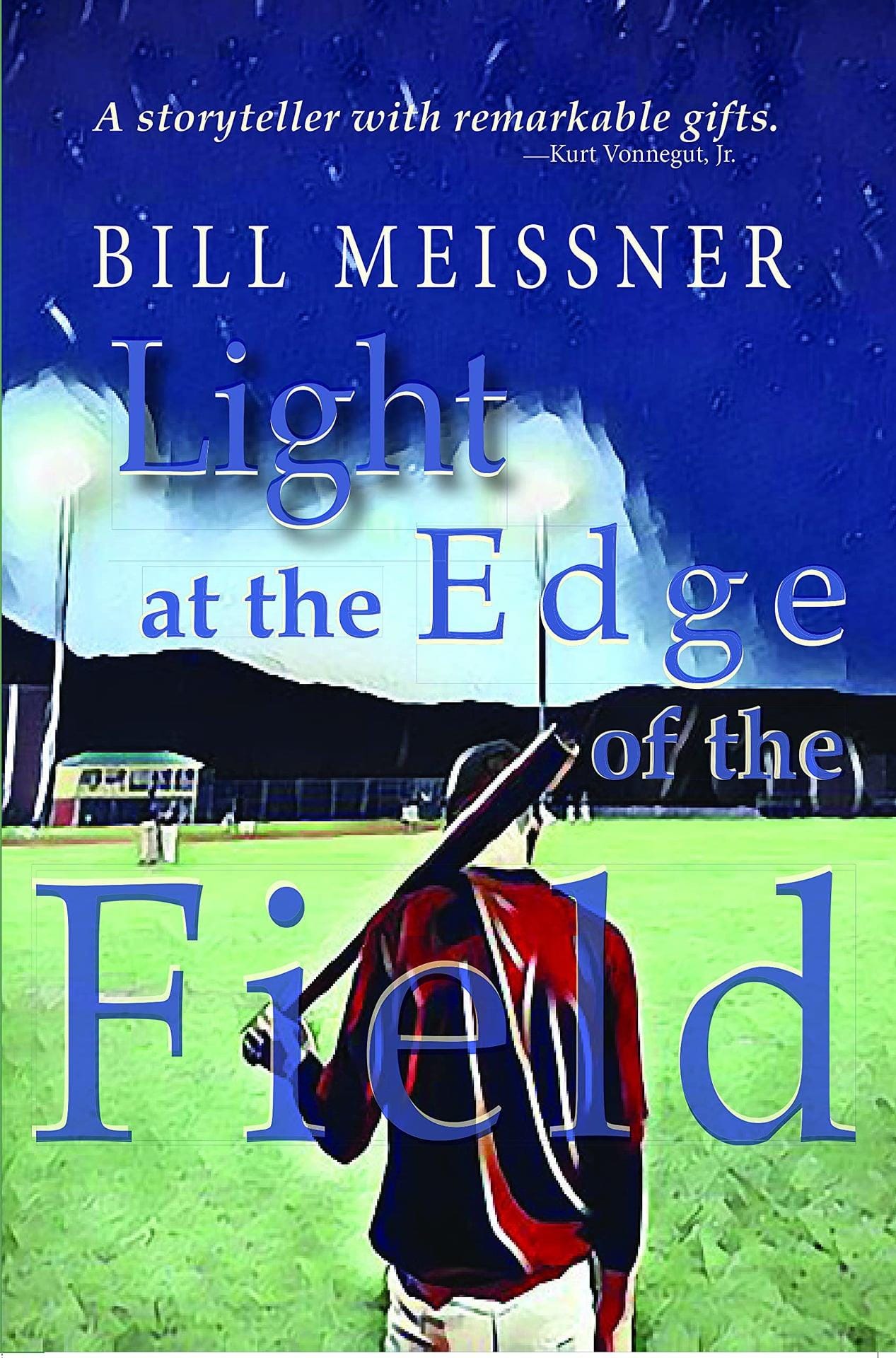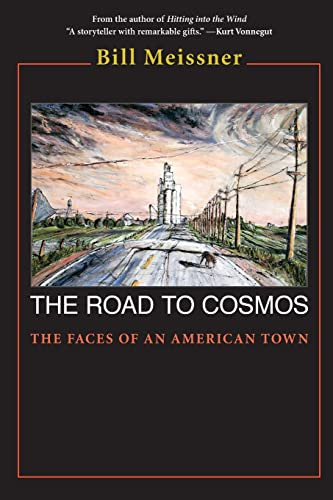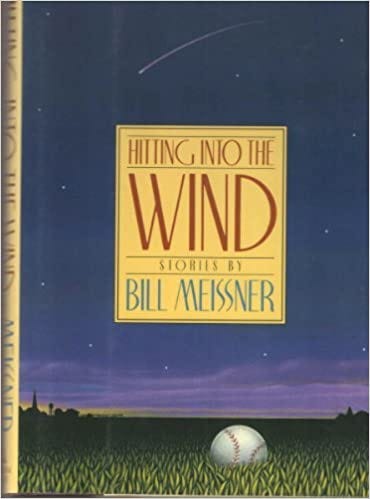Interview with Bill Meissner - 2022
Interview # 11 (fiction, short stories, sports fiction, literary fiction)
St. Cloud, Minnesota writer and teacher Bill Meissner is the author of eleven books. His newest collection, a book of short stories with a baseball theme, is Light at the Edge of the Field (Stephen F. Austin State University Press). His five collections of poetry include American Compass (U. of Notre Dame Press), Learning to Breathe Underwater and The Sleepwalker’s Son (Ohio U. Press), and Twin Sons of Different Mirrors (Milkweed Editions). His latest book of poetry is The Mapmaker’s Dream (Finishing Line Press, 2019). Bill’s novel, Spirits in the Grass (U. of Notre Dame Press), won the Midwest Book Award. His two books of short stories are Hitting into the Wind (Random House Publishers/SMU Press Paperback/Dzanc Press) and The Road to Cosmos (University of Notre Dame Press).
His most recently released book is Circling Toward Home: Grassroots Baseball Prose, Meditations, and Images (Finishing Line Press, February 2022). His second novel, set during the turbulent years of the late 60s and the Vietnam War is entitled Summer of Rain, Summer of Fire. It will be published by Stephen F. Austin State University Press in the fall of 2022.
Bill’s hobbies and interests include travel (especially to tropical locations), rock music, baseball, photography, pulp fiction magazines, and collecting vintage typewriters. He has taught creative writing at St. Cloud State U., and frequently presents workshops at local elementary schools, high schools and colleges as a visiting writer. He lives in St. Cloud with his wife, Christine.
Randal Eldon Greene: Hello, Bill Meissner
When it comes to baseball, the word I think of is romance. The stories in Light at the Edge of the Field all revolve around baseball and grab at that romance unashamedly and passionately. When and where did you learn to love baseball?
Bill Meissner: I learned to love baseball when I was a kid at about age six or seven. I joined a little league team, and my father took me to some local amateur games in Algona, Iowa, where we saw and met some Negro League players. Later, we attended Milwaukee Braves games where stars like Hank Aaron, Eddie Matthews, and Warren Spahn were featured. On the third pitch of the very first game we attended, I got a foul ball hit by Willie Mays. It was an amazing thrill, and that pivotal moment has stayed with me since.
When I was a kid, there was a place across the street from our house that we called "the vacant lot." At the far end of the empty lot was a wood-slat fence bordered by a small, wooded area. The neighbor kids and I always played ball there, using a worn spot in the dirt as a home plate. I once found a Babe Ruth model bat somewhere in the deep grass, and kept it until it was misplaced during one of our family’s several moves.
Some of my fondest memories are playing catch with my dad when I was a kid and later with my own son, the ball arcing back and forth between our hands. It’s a kind of connection between people, a timeless, pendulum-swinging action. During my early high school years, I practiced tirelessly at baseball, sometimes even playing in December in 32 degrees when there was snow on the ground. I had my sights set on making the Major Leagues, but of course that didn't happen.
And yes, I do believe there's a kind of romance in baseball. It's the romance that’s associated with the beginning of the season, when the long, cold winter ends (at least in the upper Midwest), the snow melts in late March, and the first days of spring arrive, along with the promise for the future.
Randal Eldon Greene: In your first story, you give us a girlfriend who is living with her minor league baseball-playing boyfriend, and she wants him to see more than just baseball. At first I thought this was a curious way to start a collection about baseball, but then I realized that these tales are about more than just the old ballgame, and what you're really doing by writing these stories is asking us to look beyond the game while keeping the game at the center of our attention.
Bill Meissner: That's an excellent assessment of some of these stories, Randal. Several stories in this book focus on strong female characters. I hope that the stories only touch on the game of baseball, but that they resonate further than that, to situations in life that parallel or echo the game. Baseball is, after all, a pastime, a sport, and a form of entertainment, and life goes on both before it and after it.
I think of these stories as having a baseball center, and like a baseball with hundreds of feet of string and yarn around its central core, they spiral outward from there. In fact, some stories, like "The Keys" have very few baseball references. That story is a character study of a person struggling with his past, his identity, and his future. The same goes for "A Day in the Life of a Groundskeeper." Its main character portrays a person who completes a task to the best of his ability, and it also touches on the theme of perseverance in the face of adversity. Dusty Sikarsky, in "In the Middle of a Steal," is a former Major League star who must deal with his post-baseball life as a used car salesperson. Bud Walden, in "Swimming the Quarry," grapples with the untimely death of his wife while still trying to retain a positive attitude about his coaching job for the local youth baseball team.
Randal Eldon Greene: "In the Middle of a Steal" was one of my favorite stories (perhaps I'm just a sucker for puns, which this story employs quite effectively). Like all the pieces in Light at the Edge of the Field, there's a positivity imbued in it that just makes me want to peruse it twice in a row. But I think what I love particularly about this story is the character of Dusty Sikarsky. Dusty holds a sales job that is the complete opposite of what he wanted out of life when he still dreamed of bigger things. And that is, for me, totally relatable.
Bill Meissner: I'm glad you liked this one, Randal. Dusty Sikarsky is one of my favorite characters from the book, too. Sometimes being a writer is both strange and exciting. You invent a character, give him or her a physical appearance, an age, an occupation, and certain ways of speaking. Then you develop a story around them. Eventually, if you go deep enough into the character, you almost start to think of them as a real person. You know what the character would do or say or think in certain situations or conflicts. Dusty is like that for me. I wrote another story about him a few years ago in my collection Hitting into the Wind, and in both stories, he works through his conflicts by being true to himself and going back to his roots. It seems to me that a lot of our lives involve compromise—our dreams versus the realities of our lives. And if we can't quite achieve everything we dream, then we have to learn to embrace our realities.
Randal Eldon Greene: There's a tension in some of these stories between the dreams of baseball players and their life outside of the game. What makes this particular tension such a volatile plot point?
Bill Meissner: I've always had a fascination with what ballplayers will do after their career is over. When it comes to most careers in the workplace, you can continue for 20, 30, or 40 years (if you enjoy what you do), but very few professional (or amateur, for that matter) athletes play successfully beyond their thirties. I was on a city league softball team where the players, once they reached about age 40, quit and referred to themselves "retired." So sometimes, in a story, I focus on that pivotal turning point and how a person chooses to deal with it or cope with it because it often says a lot about the individual.
Randal Eldon Greene: These stories did teach me something I never realized about baseball: the game seems to make young men feel old and old men feel young again. As a person too uncoordinated to manage even backyard catch, I have to ask, is this the nature of all sports or is there something in particular about baseball that bends the years like a magically warped clock?
Baseball is a kind of fountain of youth for some players.
Bill Meissner: Baseball is a kind of fountain of youth for some players. When you're older, the game often brings back the days of your youth, perhaps when you first played catch or tried to hit a ball on a warm spring day. You drink those memories in. And unlike some other sports—football, for instance—it's a non-contact sport, so you can often continue to play without injury or your legs breaking to pieces beneath you. I met a guy who was about 70 and still played on an over-fifty softball league, which is the next best option after hardball. Florida has a group of teams that play in the Senior Professional Baseball Association. It's fast-pitch baseball, and some of the players are over fifty. Try that with full-contact football!
Randal Eldon Greene: In “News, Weather and Sports” you remind us how baseball was able to function as a public black space—a space of both pride and talent. Yet you also make it clear that this space was mediated by white spectators and their expectations, which just broke my heart to read.
Bill Meissner: This story, about a young boy, his father, and a skilled African-American amateur player named Elston, explores how racism affected black players in the early years. Negro League players, despite their awesome ballplaying talent, were expected to perform demeaning comic acts and humorous antics as part of their game-day performance, and thus, a team in Indiana was given the name the Indianapolis Clowns. The great Hank Aaron—my all-time favorite Major Leaguer—was a member of that team for a while. In the story, the father is eventually forced to explain to his innocent son about the prejudice and discrimination that black players experience.
Randal Eldon Greene: Sports in general (and baseball in particular, starting with Jackie Robinson), are well-known now as institutions that broke down the barrier of race. The "legends" of the first great black ballplayers in the US almost make it seem a hallowed inevitability. Is it because you wanted your readers to remember that the barriers weren't always open and had to be torn down section by section and brick by brick, that you decided to give us this story? Or did you write "News, Weather and Sports" as a way of addressing for yourself the racism that once existed in this game you love dearly?
Bill Meissner: Yes, I did want my readers to be aware of the barriers that African-American ballplayers faced during the early years. Some of the stories I've heard about those days are shameful. Black barnstorming teams were often banned from staying in hotels. A restaurant broke the plates after a black team dined there. In the 1930s, one great black pitcher—John Donaldson—was given a proposition. He was asked to change his name, disown his heritage and his family, claim that he was a native of Cuba, and then he could be signed to a Major League team. He declined, of course. Those events in our history are scars on America.
Randal Eldon Greene: I'm curious about the structure of Light at the Edge of the Field. It's broken into four parts: 1) First Pitch, 2) Running Through Deep Grass, 3) In Another League: Curves, Change-Ups, and Stolen Bases, and 4) The Diamond-Shaped Circle. Part one has only one story, and the rest contain anywhere from 7 to 11 stories. I can't recall running into another collection broken into unique sections like this, and I want to dig into how you both curated and grouped the stories in this book.
Bill Meissner: I placed "What's Next: The Baseball Lovers" first in its own section because I felt like it was among the strongest of the stories, so it should be the lead-off hitter. It also had a unique point of view—the woman's perspective regarding her ballplayer boyfriend. Part two includes stories that focus more on childhood, such as "Wing Tip Shoes" as well as other stories that I felt were quite strong. "In Another League" gives the reader some changes in tone, with sometimes lighter or more humorous relationship pieces. It also contains what I hope are some unique fictional characters, like Matt Spriggs in "The Unlikely Ones," or the main character in "The Migration," which is a mystical, dreamy story, or the “Zen Baseball” story. Part Four is a kind of reprise, with a focus on characters who are looking back at their careers and/or lives.
To be honest, though, it is very difficult to group stories, when they’re so diverse. In other words, I had to ask myself: when I have two stories about Mexican ballplayers in the Yucatan, how do they fit next to a story about a father and son in the small-town Midwest, or about a used car salesperson in Eldorado, Kansas, or a closer-to-home story based on my wife during batting practice? The answer is that they don't, really. Each was written with a different focus and with a different set of characters and conflicts. So they stand side by side, just like the ballplayers on a diverse roster—some from the U.S., and others from the Dominican Republic or Puerto Rico. And, of course, at the end, I hope that it's a strong team.
Randal Eldon Greene: One cannot talk about baseball—let alone write a whole book about baseball—without talking about fathers and sons. There's a number of father-son examples in your stories, and you explore the theme in varied ways. So I must ask, what is it about baseball that mediates relationships between dads and their boys?
In a perfect world, we climb on our parents' shoulders, and they lift us up.
Bill Meissner: Fathers and sons and baseball are a classic combination. Mothers and daughters and sons too, of course. Fathers have typically been a major influence on their sons and daughters and their futures. It was definitely that way with me. So, yes, a fictionalized version of him has a key role in a couple of these stories, including one that focuses more on the conflict between a father and an impatient teen. Two others, such as the one entitled “The Things You Lose: An Illusive Kind of Light,” are more nostalgic. In a perfect world, we climb on our parents' shoulders, and they lift us up.
Purchase Light at the Edge of the Field on Amazon.
© 2022
About the interviewer:
Randal Eldon Greene is the author of Descriptions of Heaven, a novella about a linguist, a lake monster, and the looming shadow of death. His typos are tweeted @AuthorGreene and his website is AuthorGreene.com














